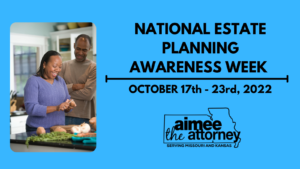
When Rebecca was just 15 years old, she had a scare with her heart. She had a high heart rate, dizziness, and was short of breath. There wasn’t a lot that could tame her symptoms, except getting herself into an upside down position. Doctor’s struggled to diagnose her for over a year, when one day she thought she was having a heart attack. She was having heart palpitations that she could not get under control and she had fainted and hit her head and became unconscious. Her mother, Teresa, had to take her to the hospital. There the doctor’s were finally able to figure out what was wrong with her, by giving her a medicine that essentially stopped her heart. Rebecca was diagnosed with Supraventricular Tachycardia, or SVT. The procedure for SVT is to burn out the area of your heart that is causing it to be overactive. When Rebecca was just 16 years old, she had the procedure. The doctor warned her that the procedure might not completely fix her and later in life she might have some recurring symptoms. Three full years went by and Rebecca had no other symptoms or issues.
Now Rebecca is 19 years old and in college at her dream school. She hasn’t thought about her heart condition in a while, and genuinely believes that all of that is behind her. She is a year into college, has a lot of friends, and everything seems to be going well. One day on her way to class, Rebecca’s heart condition acted up. It came out of the blue as she was walking up some stairs. She got so dizzy that she fainted and fell down the stairs. She hit her head on the way down and became unconscious. She was transported to the local hospital where her mom came to help take care of her. Unfortunately, Rebecca doesn’t have any paperwork indicating who can make decisions for her if she were to become incapacitated. Since Rebecca is now over the age of 18, it is not automatic that her mother is able to make her medical decisions. Teresa knows all of Rebecca’s medical history and has a good idea of what her daughter would want her to do in this scenario, but the doctor’s can’t release information to her because there is no documentation.
It never crossed Teresa or Rebecca’s mind that this one day could happen again and that they might need some documentation allowing Teresa to make medical decisions. This is where estate planning would come in handy. No one thinks that when you are only 19 years old and have your whole life ahead of you, that something so terrible could happen that would render you incapable of making decisions for yourself. In this case, Rebecca should have made a healthcare power of attorney when she turned 18 years old so that just in case her heart condition caused her problems, the doctors would be able to give her medical information to her mother.
Thankfully, Rebecca is able to recover from her incapacitated state within a day. She had no lasting brain issues, but it is clear that her heart condition was not fully taken care of in her first surgery. So now she will have to have a second surgery to finish what was leftover from the first surgery. This time, however, before they schedule the surgery, Rebecca and her mom visit their attorney and have a health care directive set up so that Teresa is able to be told about Rebecca’s medical information and make any decisions in the chance that Rebecca were to become incapacitated again. With these documents signed and in place, Rebecca has her surgery and everything goes smoothly. The doctor’s tell her that they are pretty certain they have completely fixed the issue, but there is always a slim chance that her heart condition could return.
Now Teresa can leave Rebecca at school with the knowledge that if anything were to happen again, they were taken care of at every point and there wouldn’t be a repeat of the situation before. Estate planning might seem like something only older people with serious medical conditions need to do, but Rebecca’s story shows us that is not true. While Rebecca’s actual heart condition is not life threatening, some of the symptoms, like fainting and falling, can cause serious damage that wouldn’t be expected. It is much better to be safe than sorry when you are off on your own and don’t have the safety net of your parents being able to automatically take care of you in a medical crisis. Don’t wait until it’s too late, contact an estate planning attorney that can take you through the process and make sure you and your loved ones are taken care of in the case of a medical emergency.
